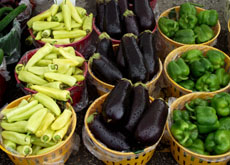Raw Food
/Consuming raw foods can be an excellent way to increase your nutritional intake. The heat used during cooking can destroy healthy nutrients in food such as the cancer-fighting sulforaphanes found in Kale or Vitamin C found in many vegetables. However, it is a myth that all foods should be eaten raw. Tomatoes, for example, become 3 to 4 times more lycopene-rich after they are cooked. Nuts are another food group that need preparation to become more nutrient rich. Soaking and germinating legumes such as mung beans or cashews helps make the enzymes and nutrients more absorbable in your body by helping to break down the fiber casing that protects the nutrients. It is a good idea to consult with Dr. Bossio about which foods are best consumed raw. Kidney beans, for example, should never be eaten raw. Other precautions when eating a raw food diet includes eating produce that has been treated with pesticides, or consuming high-sugar fruits and fruit juices if you have blood glucose regulation problems as with diabetes. A good rule of thumb is to eat a rainbow of colors when consuming produce. This will help ensure you get the full spectrum of healthy phytochemicals. If you decide to eat a 100% raw food diet, it is critical to seek the input of a licensed and experienced professional, such as a Naturopathic Doctor to make sure you are meeting all your nutritional needs.
Image Attribution: cinemaven/freeimages.com
References

